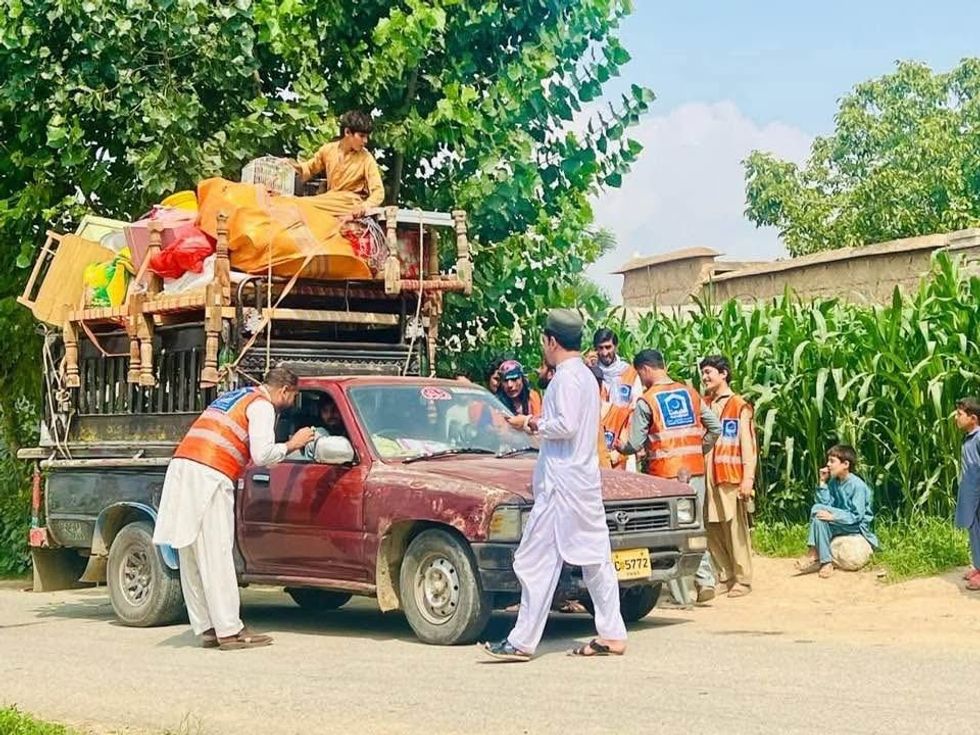Peace talks collapse in Pakistan's Bajaur, raising risk of fresh military action
After failed peace talks, residents flee amid fears of a military operation against TTP militants

Kamran Ali
Correspondent Nukta
Kamran Ali, a seasoned journalist from Khyber Pakhtunkhwa, Pakistan, has a decade of experience covering terrorism, human rights, politics, economy, climate change, culture, and sports. With an MS in Media Studies, he has worked across print, radio, TV, and digital media, producing investigative reports and co-hosting shows that highlight critical issues.

Another jirga member Najeeb Mamund said the delegation had pressed the TTP to vacate the area and return to Afghanistan.
Nukta/File
Peace talks between tribal elders and the Tehreek-e-Taliban Pakistan (TTP) have collapsed in Pakistan’s unrest-hit Bajaur district, heightening the likelihood of a renewed military offensive, as residents begin fleeing the area.
Dr Hamid ur Rehman, a senior member of the Bajaur Peace Jirga and a Pakistan Tehreek-e-Insaf (PTI) legislator in Khyber Pakhtunkhwa (KP), confirmed to Nukta that negotiations with the Tehreek-e-Taliban Pakistan (TTP) had collapsed after seven rounds due to an impasse over unmet demands. “TTP demanded the withdrawal of additional troops from Loe Mamund tehsil, a proposal security forces declined,” he stated.
Another jirga member Najeeb Mamund said the delegation had pressed the TTP to vacate the area and return to Afghanistan—a demand the group rejected—and to refrain from targeting security forces. The TTP, he added, conditionally agreed to the latter, pledging not to initiate attacks if the military also held back.
Following the failed talks, TTP also announced the end of a 10-day ceasefire.
Operation on cards
Rehman said the jirga had urged both sides to avoid hostilities, stressing that conflict was not a solution. However, he added, “If one side resorts to aggression and launches an attack, the other has the right to respond in self-defense.”
Earlier, Barrister Muhammad Ali Saif, the Chief Minister Khyber-Pakhtunkhwa's Advisor on Information, told Nukta that if negotiations fail, a targeted operation will be carried out. “We must eliminate the terrorists and clear the area of militants,” Saif said.
According to sources, officials informed Chief Minister Ali Amin Gandapur that militants remain active in around 20% of Bajaur, with an estimated 60% of them believed to be Afghan nationals attempting to regroup through Bajaur into the Mohmand and Malakand districts. “A targeted operation against the militants is planned, while emphasizing that restoring stability in Bajaur will require federal involvement,” sources added.
Villagers leave area
After talks’ failure, locals of Loe Mamund have stated relocating due to the prospect of military operation. “Many people have already left the area, and we too are looking for a rented house. We will leave shortly because protecting our lives comes first,” said Amjad, a resident of Loe Mamond.
According to Rehman, Wara Mamund and Loe Mamund tehsils have a combined population of about 300,000, but more than 18,000 families are expected to be affected by the planned military action. “Over 7,000 families have already relocated, and others are leaving due to security concerns and past experiences,” he said.

He added the government is facilitating the evacuation by providing transportation, while a summary has been submitted to the provincial cabinet for approval of compensation for any houses damaged during the operation — a decision expected tomorrow.
Barrister Saif told Nukta that the government has not asked anyone to leave the area; however, residents choosing to relocate as a precaution is a welcome move. “They can return once the situation returns to normal,” he added.
Talks were initiated after security forces launched an operation on July 29 across 16 villages in Loe Mamund tehsil. The offensive, carried out under a curfew, resulted in the deaths of three civilians and left 11 others injured.
The unrest sparked local resistance, leading to direct negotiations. A temporary ceasefire was brokered within a day, but after seven rounds of discussions, the talks collapsed.







Comments
See what people are discussing